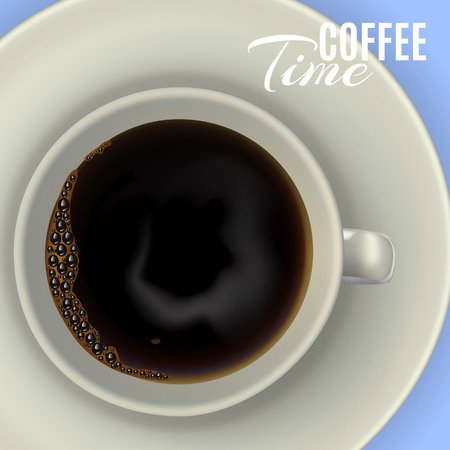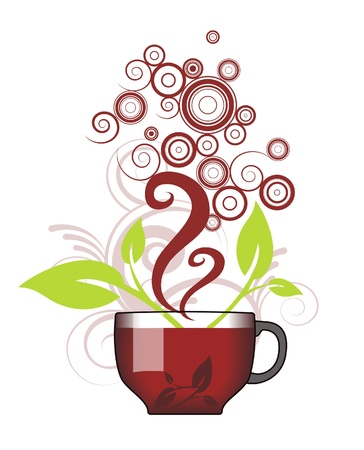Introduction: The British Coffee Evolution
For centuries, Britain has been synonymous with tea-drinking rituals and the genteel tradition of afternoon tea. Yet, in recent decades, coffee has quietly brewed its way into the heart of British daily life, marking a significant cultural shift. Today, coffee shops line every high street, from bustling London boroughs to quaint market towns, and ordering a flat white or an Americano is as natural as requesting a cuppa. This transformation is more than just a change in beverage preference—it signals a broader evolution in British identity and lifestyle. As coffee consumption rises, its presence in British film, television, and music has become increasingly prominent, reflecting and influencing trends in society. This article explores how coffee moved from being an exotic alternative to tea into a staple of modern British culture, setting the stage for its starring role in popular media and shaping how Britons see themselves and their world.
2. Coffee on the Silver Screen
Coffee has long held a subtle yet unmistakable presence in British cinema, serving as more than just a background prop. Its role fluctuates across genres, often mirroring the nuances of British culture and society. In romantic comedies, for example, a steaming mug of coffee is frequently used as an icebreaker—a reason for two characters to linger at a café, exchange glances, or stumble into witty repartee. The bustling coffee shop scenes in films like “Notting Hill” or “Love Actually” are quintessentially British, setting the mood for serendipitous encounters and understated confessions. These cinematic moments often reflect the UK’s evolving café culture, where independent coffee shops have become social hubs and backdrops for modern romance.
Coffee as Character Development in Drama
On the grittier side of British film, coffee takes on a different flavour altogether. In intense dramas or crime thrillers—think “Layer Cake” or “Tinker Tailor Soldier Spy”—a character’s relationship with their cup of coffee can reveal much about their personality or emotional state. Whether it’s the ritualistic brewing of a strong black coffee in a dimly-lit kitchen, or the hurried gulp from a disposable cup before a pivotal confrontation, these moments use coffee to underscore tension and vulnerability. The choice between instant coffee and a carefully brewed espresso may even hint at class distinctions or personal values within the narrative.
Portrayal of Coffee in British Films: A Comparative Overview
| Genre | Function of Coffee | Notable Example |
|---|---|---|
| Romantic Comedy | Social catalyst, backdrop for encounters | “Notting Hill” |
| Drama/Thriller | Character development, mood setting | “Tinker Tailor Soldier Spy” |
| Coming-of-Age | Symbol of adulthood/independence | “Billy Elliot” |
| Crime/Noir | Tension builder, signifier of routine or stress | “Lock, Stock and Two Smoking Barrels” |
Cultural Context: From High Street Cafés to Kitchen Tables
The depiction of coffee in British films often mirrors wider societal trends—from the rise of high street chains to the resurgence of artisanal roasters. While older films might focus on instant coffee sipped at home kitchens, contemporary cinema embraces the diversity of modern British coffee culture. This evolution not only adds authenticity to storytelling but also anchors characters within recognisable cultural settings. Ultimately, whether serving as a silent witness to private revelations or punctuating dialogue with everyday realism, coffee remains an integral part of Britain’s cinematic language.

3. TV and the Rise of Coffee Shops
The evolution of British television has mirrored and, in many ways, propelled the nation’s burgeoning coffee culture. Far from mere background props, coffee shops have become central social arenas in numerous iconic series, symbolising both community and modernity. In long-running soaps such as EastEnders and Coronation Street, local cafés are more than meeting points—they’re pivotal spaces where secrets are spilled, alliances forged, and everyday drama unfolds. The coffee shop setting offers a democratic landscape: characters from all walks of life can gather over a flat white or a builder’s tea, reflecting Britain’s diverse social tapestry.
Coffee Shops as Community Hubs
In contemporary dramas and comedies, coffee shops represent the pulse of urban life. Series like Gavin & Stacey or Fleabag use these venues to root stories in recognisable realities. Here, relationships blossom or unravel; friendships are tested or deepened—all with a cup in hand. This environment captures the essence of British sociability: informal yet meaningful exchanges over coffee serve as narrative devices for character development and plot progression.
The Influence of International Trends
While American sitcoms like Friends popularised the coffee shop ensemble cast dynamic globally, British TV has tailored this trope with local flavour. Quirky independent cafés and traditional greasy spoons coexist on screen, highlighting regional identities—from London’s cosmopolitan high streets to Manchester’s homey neighbourhoods—while also underscoring the UK’s own artisanal coffee revolution.
Coffee Rituals and British Identity
The depiction of coffee rituals—ordering, brewing, even queuing—has subtly permeated national identity through television. These moments reflect not just evolving tastes but shifting cultural attitudes: the embrace of continental espresso culture alongside traditional tea-drinking habits marks an ongoing transformation in how Britons connect, unwind, and share their stories in everyday life.
4. Coffee in British Music and Lyrics
Coffee has long percolated its way into the heart of British music, serving as both a motif and a symbol across various genres and eras. From indie anthems to chart-topping pop, British artists have frequently referenced coffee in their lyrics, using it to signify everything from everyday comfort to moments of introspection or social commentary.
Iconic References: Coffee in Lyrics
British musicians often use coffee as a metaphor for warmth, routine, and sometimes emotional complexity. Whether it’s an early morning brew after a long night out or a contemplative cup shared between lovers, coffee appears in songs to evoke relatable experiences. For instance, Blur’s “Coffee & TV” cleverly juxtaposes the mundanity of daily rituals with themes of escapism, while The Kinks’ “Have a Cuppa Tea” blends social observation with wit.
Notable Songs Featuring Coffee
| Artist/Band | Song Title | Coffee Reference | Significance |
|---|---|---|---|
| Blur | Coffee & TV | Coffee as daily ritual, escape from monotony | Symbolises modern lifes routines and desires for change |
| The Kinks | Have a Cuppa Tea | Tea and coffee as social connectors | Cultural identity and family tradition |
| Adele | Someone Like You | Sipping coffee during reflection | Evokes nostalgia and heartbreak in ordinary settings |
| The 1975 | Loving Someone | Mentioning coffee in late-night conversations | Represents intimacy and youth culture |
| Lily Allen | Littlest Things | Coffee cups left behind after a relationship ends | Symbolises memory and loss through everyday objects |
Coffee as a Motif in Contemporary Lyrics
Modern British songwriters leverage coffee not just as a beverage but as a literary device. It becomes shorthand for connection, comfort, or even alienation within urban life. This motif resonates strongly with listeners who see their own lives reflected in these small yet significant moments—whether it’s sharing coffee on rainy London mornings or seeking solace in caffeine-fuelled nights.
The Significance of Coffee in Modern British Music Culture
Coffee’s presence in British lyrics highlights its role as more than just a drink; it represents both personal and collective experiences. By anchoring emotions within familiar scenes—like sitting in a café or reminiscing over an unfinished cup—musicians invite audiences to find meaning in the mundane. In this way, coffee continues to serve as a powerful symbol within the evolving landscape of British popular music.
5. Iconic British Cafés: From Screen to Reality
The interplay between British media and real-life coffee culture is perhaps most vivid in the enduring legacy of iconic cafés that have made their mark on both screen and street. These establishments are more than just places to sip a flat white; they have become cultural touchstones, immortalised by their appearances in film, television, and music.
The Café as a Cinematic Landmark
Classic British films such as “Alfie” and “Notting Hill” feature local cafés as atmospheric backdrops, shaping the narrative while reflecting London’s evolving social fabric. The famous blue-fronted “The Travel Bookshop” in Notting Hill, although not a café per se, inspired nearby establishments like ‘The Notting Hill Coffee Project,’ where fans gather for a cinematic coffee experience. These spots blend nostalgia with contemporary coffee craftsmanship, merging reel life with real life for locals and tourists alike.
Soap Operas and the Ubiquitous Cuppa
Long-running soap operas such as “EastEnders” and “Coronation Street” rely on their fictional cafés—‘Kathy’s Café’ and ‘Roy’s Rolls’—as vital communal spaces where storylines unravel over mugs of builder’s tea or milky lattes. While these locations are set-bound, they mirror the essential role of high street cafés like Greggs or Costa Coffee in everyday British life. The connection is so strong that some fans seek out similarly styled independent cafés across the UK, eager to recreate the sense of belonging portrayed onscreen.
Music Videos and Indie Coffeehouses
The indie music scene has also contributed to café culture’s media resonance. Iconic venues such as Soho’s Bar Italia—a haunt for musicians since the 1940s—have featured in music videos and album covers, cementing their status as creative hubs. Bands like Blur and Oasis reference coffee shops in lyrics or interviews, underlining how these spaces foster creativity and community.
Coffee Chains with Celebrity Status
High-street giants like Costa Coffee, Pret A Manger, and Caffè Nero have not only become fixtures of the urban landscape but have also appeared in countless British dramas and comedies. Their instantly recognisable branding serves as shorthand for modern city life, underscoring coffee’s integration into daily routines from Manchester to Brighton.
From Fictional Tables to Real-Life Rituals
Through repeated exposure on screen and stage, certain British cafés transcend their original function to become pilgrimage sites for fans. Whether it’s seeking out the understated elegance of a Bloomsbury espresso bar after seeing it in a BBC drama or queuing at an East End caff reminiscent of your favourite soap opera setting, these venues anchor coffee firmly within Britain’s cultural imagination.
6. Conclusion: Coffee as a Reflection of British Identity
In examining the presence of coffee in British popular culture—across film, television, and music—it becomes clear that this humble beverage is more than just a drink; it serves as a mirror to the nation’s evolving identity. As British society has grown increasingly multicultural and cosmopolitan, coffee culture has become intertwined with themes of community and diversity. From bustling high street coffee chains frequented by characters in TV dramas to the indie cafés that often serve as meeting points in films, coffee spaces foster social connection and inclusion, reflecting Britain’s shift away from solitary tea traditions toward a more communal, globally influenced way of life.
Coffee’s role on screen and in music lyrics also highlights changing social habits and values among Britons. Whether it’s casual conversations over a flat white or a late-night songwriting session fuelled by espresso, these moments encapsulate a broader trend: the embrace of informality, creativity, and openness to new experiences. The depiction of coffee rituals in media often underscores generational change, urban vibrancy, and the blending of tradition with modernity—a microcosm of British society itself.
Ultimately, the recurring motif of coffee across British pop culture signals more than a shift in drinking preferences; it represents the adaptive spirit and inclusiveness at the heart of modern British identity. As Britain continues to evolve, so too will its relationship with coffee—serving not only as a comforting daily ritual but also as an ongoing symbol of unity, diversity, and cultural progression.


